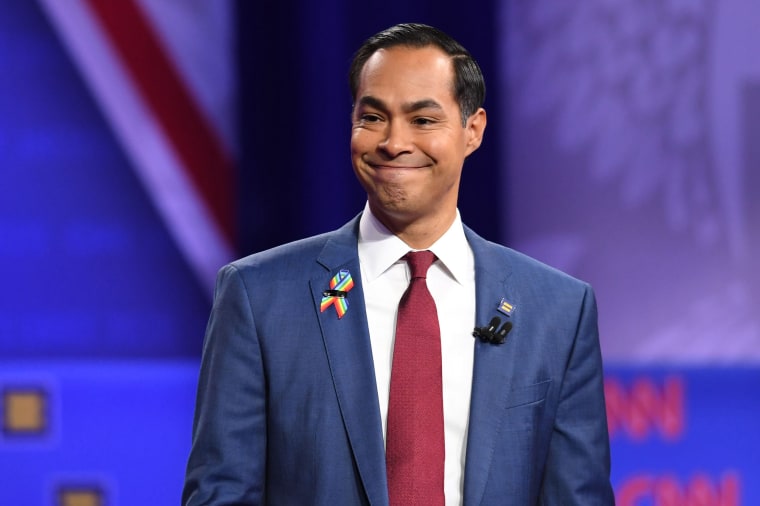Democratic presidential candidate Julián Castro released a criminal justice platform Wednesday aimed at what he called "a wholesale reversal of damage" from the policies that contributed to the mass incarceration following the 1994 federal crime bill.
“We talk a lot about second chances in our criminal justice system, but too many young people don’t truly ever get a first chance in life,” said Castro, a former Obama housing secretary and the only Latino in the race for the Democratic nomination.
Castro"s "This First Chance Plan" focuses on connecting the dots between crime prevention and opportunity, outlining the need to address factors such as adequate housing, pre-K to college education, job training and foster care reform, particularly for communities of color. Castro cited, for example, that 80 percent of prison inmates have spent time in foster care.
The plan outlines details under three areas — prevention instead of prison, restorative justice and post-incarceration programs.
The first, prevention, includes a focus on communities of color, addressing police violence and legalizing marijuana.
Under restorative justice, Castro states that 6 in 10 students at a juvenile facility never re-enroll in school once they're released, and he wants to set stricter standards for juvenile incarceration — which now can include behaviors like underage drinking or skipping school — and prohibit holding young adults under 21 in adult facilities.
Castro’s plan would end cash bail and limit pre-trial detention to a last resort; end solitary confinement for punitive purposes; and close for-profit prisons. It would also emphasize measures to address the challenges of women, LGBTQ and disabled inmates.
Under "Heal the Wounds of Incarceration," Castro describes "second-chance centers" as one-stop-shops for advice; calls for a Pell Grant Program to provide federal aid to current and formerly incarcerated people; and wants to restore voting rights for felons and clemency for nonviolent offenders.
The 1994 crime bill, which was signed into law 25 years ago by President Bill Clinton, earmarked billions of dollars in funding for states to build new prisons. It also included the training and hiring of additional police, an expansion of the federal death penalty and the controversial “three-strikes” life sentence mandate. Other Democratic candidates, like Sens. Kamala Harris of California and Cory Booker of New Jersey, have condemned the legislation and questioned fellow candidate and former Vice President Joe Biden, who as a senator at the time voted for the bill.
In June, Castro was the first of the Democratic candidates to release a policing reform platform aimed at addressing police violence and its effects on communities of color. It included restricting the use of deadly force by police.
Castro announced Monday that he will be forced to drop out of the race if he does not raise $800,000 by Oct. 31.
Castro is also participating Wednesday in a criminal justice town hall with families and community leaders in Waterloo, Iowa.
Follow NBC Latino on Facebook, Twitter and Instagram.


